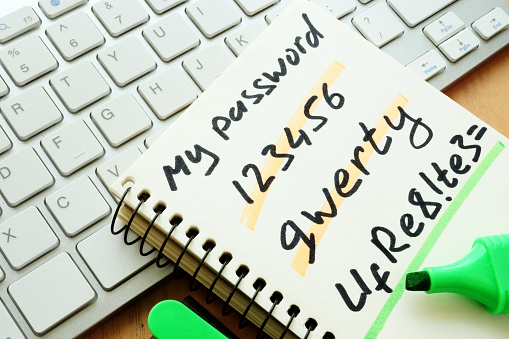Regardless of the money businesses invest in cybersecurity, technology is only part of the cybersecurity puzzle. Regardless of new hardware, updated software and the best IT support team, cybersecurity is an ongoing commitment. Cybersecurity must be on the minds of every employee every hour of every day.

A Chain Is Only As Strong As Its Weakest Link.
This idiom is attributed to Thomas Reid who wrote “Essays on the Intellectual Powers of Man” in 1786. It first appeared in print in 1868 in the Cornhill Magazine. Simply put, it means that a group of people can only be as strong or successful as the weakest or least successful member.
Email is a favored method of cybercriminals – email is used to transmit ransomware, viruses and other harmful software.
Each email that each employee opens represents a cybersecurity threat. Only with a continuous and ongoing employee awareness program can you have an effective cybersecurity solution. It only takes one employee opening one email to expose your business to a cyber-attack.
Employees come and go – make sure that critical passwords are changed when an employee leaves. Be sure that new hires understand your cybersecurity policies and know to whom they should report potential risks.
What Can Businesses Do to Ensure Employees Don’t Pose a Security Risk?
First, ensure that you have a firewall, up-to-date anti-virus software and a spam filter. Always make sure that every new computer, laptop or tablet is up-to-date on these items before it is given to an employee.
Email 101. Teach email safety. These simple questions will help employees evaluate emails that originate from unknown senders.
Continuing Education for your Employees. People are people, and they forget. Employees need ongoing training about email safety. Keep the training short and exciting to keep their attention.
The Power of Human Error
In spite of educating your employees, human error accounts for almost 50 percent of data breaches. The accidental loss of a device or a misplaced document may be the cause of a severe security breach. Shred-It vice president Monu Kalsi observes that the smallest bad habits may result in substantial security risks. Examples include:
Draft a written policy to provide each employee who works remotely from home or when traveling.
Another potential source of human error may come from sub-contractors or vendors who have access to your facilities and/or employees. The Shred-It study showed that 20-25 percent of security breaches were caused by vendors. Ensure that when a vendor relationship ends that all ties are severed – change codes for keyed entrances when there is a vendor change.
Attention to small details may save your company lots of money.
The Bottom Line …
Employees are human. They make mistakes or commit errors in judgment. They also forget. Invest in updates for firewalls, security software and well-trained IT personnel. Regular cybersecurity training for your employees protects your business from damaging cyber-attacks.

Anthony has been in the MSP business since before the acronym existed. Managed IT once started as break-fix solutions and some light phone support.
Since then, he has seen the industry flourish into a landscape of platforms, cloud servers, software tools and AI . Tailoring network configurations and software stacks to the specific needs of each business.
In his current role, he focuses on proactive planning, ensuring clients can avoid potential issues altogether. This involves meticulous planning for enhanced business continuity, allowing swift resolution of any unforeseen challenges. What initially began as addressing "fires" through break-fix solutions has evolved into a proactive approach, ensuring that such issues are prevented from arising in the first place.